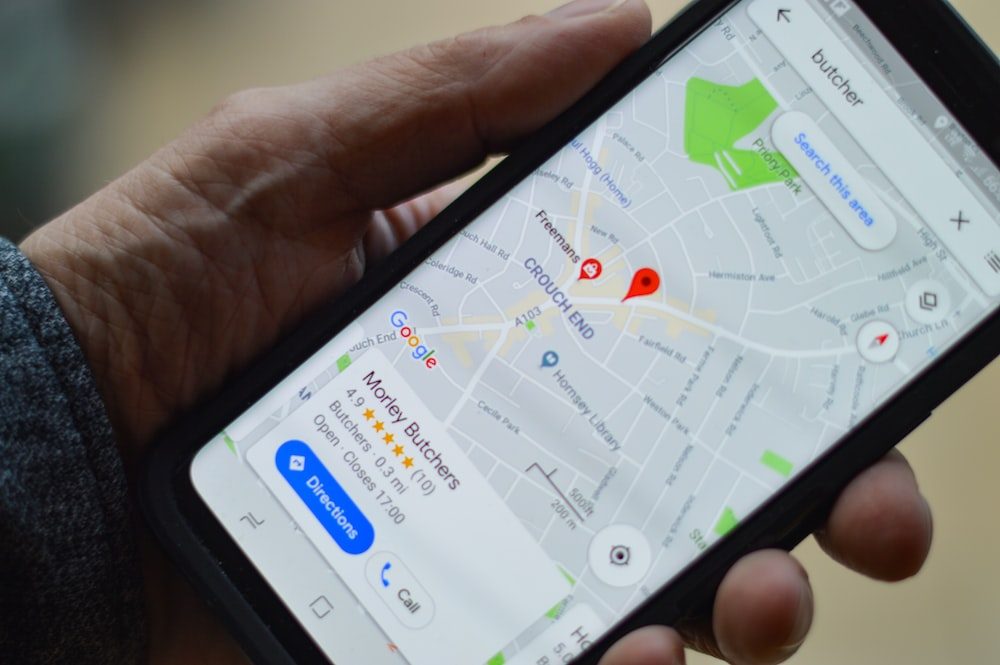
Are you looking to enhance your online presence and attract more customers to your business? Look no further than local SEO and the power of a Google Business Profile. With the majority of consumers using Google to evaluate local businesses, having a strong online presence is crucial. In this comprehensive guide, we will walk you through the steps of setting up and optimizing your Google Business Profile to improve your local SEO rankings. Get ready to dominate local search results and attract the attention of potential customers in your area.
Why Local SEO Matters
Before we delve into the specifics of setting up a Google Business Profile, let’s first understand the importance of local SEO. Local SEO is the process of optimizing your website and online presence to rank higher in local search results. This is especially crucial for businesses that rely on local customers, such as brick-and-mortar stores, restaurants, clinics, and service providers.
Studies have shown that a whopping 87% of consumers use Google to evaluate local businesses. This means that if your business is not visible in local search results, you are missing out on a significant amount of potential customers. By implementing effective local SEO strategies, you can increase your visibility, outrank your competitors, and attract more customers to your business.
Introducing Google Business Profile
At the heart of local SEO is your Google Business Profile. Formerly known as Google My Business, a Google Business Profile is a free tool provided by Google that allows business owners to customize and manage their online presence on Google search results. It enables you to display important information about your business, such as hours, contact details, reviews, and even allows potential customers to book appointments directly from Google Maps.
A Google Business Profile is a powerful tool that can significantly impact your local SEO rankings. By optimizing your profile and utilizing its features to their full potential, you can increase your chances of appearing in Google’s Local Pack and outrank your competitors in local search results.
Setting Up Your Google Business Profile
Now that you understand the importance of a Google Business Profile, let’s dive into the process of setting it up. Follow these steps to create a robust and fully optimized profile:
Step 1: Claim Your Google Business Profile
The first and most crucial step is to claim your Google Business Profile. VisitGoogle.com/business and click on the “Manage Now” button to get started. You will be prompted to sign in with your existing Google account or create a new one.
Step 2: Provide Accurate Business Information
Once you have claimed your profile, it’s time to provide accurate and detailed information about your business. This includes your business name, address, phone number (commonly referred to as NAP), website URL, and hours of operation. Make sure to double-check the information for accuracy, as any inconsistencies can negatively impact your local SEO rankings.
Step 3: Craft a Compelling Business Description
Next, craft a compelling business description that accurately represents what your business offers. Be concise yet informative, highlighting your unique selling points and key services. Incorporate relevant keywords that potential customers are likely to search for when looking for businesses like yours.
Step 4: Choose Relevant Business Categories
Google allows you to select primary and additional business categories that best describe your offerings. Choose categories that accurately represent your business and its services. While you can select up to 10 categories, it’s essential to be selective and choose only the most relevant ones. This will help Google understand your business better and improve your chances of appearing in relevant search results.
Step 5: Verify Your Business Info
To establish trust and credibility with Google, it’s crucial to verify your business information. This includes verifying your physical location, phone number, and website URL. Verification can be done through various methods, such as receiving a postcard with a verification code or receiving a phone call or email. Follow the instructions provided by Google to complete the verification process.
Step 6: Add Photos and Videos
Visual content plays a significant role in attracting the attention of potential customers. Add high-quality photos and videos that showcase your business, products, services, and team members. This helps create a positive impression and gives potential customers a glimpse into what they can expect when visiting your business.
Step 7: Encourage and Respond to Reviews
Online reviews are a major influencer in customers’ purchase decisions. Encourage your satisfied customers to leave reviews on your Google Business Profile. Respond to all reviews, positive or negative, to show that you value customer feedback and are committed to providing excellent service. Engaging with reviews also helps to build trust and credibility with potential customers.
Step 8: Utilize Google Posts
Google Posts allow you to share updates, promotions, events, and other relevant information directly on your Google Business Profile. Take advantage of this feature to keep your profile fresh and engage with potential customers. Regularly update your Google Posts with compelling content that encourages users to take action, such as visiting your website, making a purchase, or booking an appointment.
Step 9: Monitor Insights and Analytics
Google provides valuable insights and analytics about your Google Business Profile. Monitor these metrics to gain insights into how customers are finding and interacting with your profile. Adjust your strategies accordingly to optimize your profile and improve your local SEO rankings.
Step 10: Leverage Other Online Directories
While Google is the most popular search engine, it’s important not to neglect other online directories. Claim and optimize your business listings on platforms such as Bing Places for Business and industry-specific directories. Consistency in your business information across multiple directories helps establish trust and improves your overall online visibility.
Best Practices for Local SEO and Google Business Profile Optimization
Now that you have set up your Google Business Profile let’s explore some best practices for optimizing your profile and boosting your local SEO rankings:
1. Focus on Local Keywords
Optimize your Google Business Profile and website content with relevant local keywords. Include location-specific phrases, such as your city or neighborhood, in your business description, posts, and website copy. This helps Google understand the geographic relevance of your business and improves your chances of appearing in local search results.
2. Provide Accurate and Consistent NAP Information
Ensure that your business name, address, and phone number (NAP) are consistent across all online platforms, including your Google Business Profile, website, and online directories. Inconsistencies in NAP information can confuse search engines and negatively impact your local SEO rankings.
3. Encourage Customer Reviews
Positive customer reviews are a powerful signal to both Google and potential customers that your business is trustworthy and provides excellent service. Encourage your satisfied customers to leave reviews on your Google Business Profile, and respond to all reviews promptly and professionally.
4. Optimize Your Website for Local SEO
In addition to optimizing your Google Business Profile, ensure that your website is also optimized for local SEO. Include location-specific keywords in your website copy, meta tags, headings, and image alt tags. Create localized content that caters to the needs and interests of your local audience.
5. Build Quality Backlinks
Backlinks from reputable and relevant websites can significantly boost your local SEO rankings. Focus on building quality backlinks from local directories, industry associations, and other authoritative websites. Engage in guest blogging, participate in local events, and leverage social media to attract high-quality backlinks.
6. Monitor and Respond to Customer Feedback
Regularly monitor customer feedback and respond promptly to both positive and negative reviews. Address any concerns or complaints and strive to provide excellent customer service. Engaging with customer feedback not only helps build trust but also improves your online reputation.
7. Stay Active on Social Media
Maintain an active presence on social media platforms that are popular among your target audience. Share updates, promotions, and valuable content to engage with your followers and attract potential customers. Link back to your Google Business Profile to encourage reviews and direct traffic to your profile.
Conclusion
A well-optimized Google Business Profile is a powerful tool for boosting your local SEO rankings and attracting more customers to your business. By following the steps outlined in this guide and implementing best practices for local SEO, you can improve your online visibility, outrank your competitors, and dominate local search results. Remember to regularly update your profile, engage with customer feedback, and monitor your analytics to continually refine and improve your local SEO strategy. With the right approach, your Google Business Profile can become a game-changer for your business’s success in the local market.





